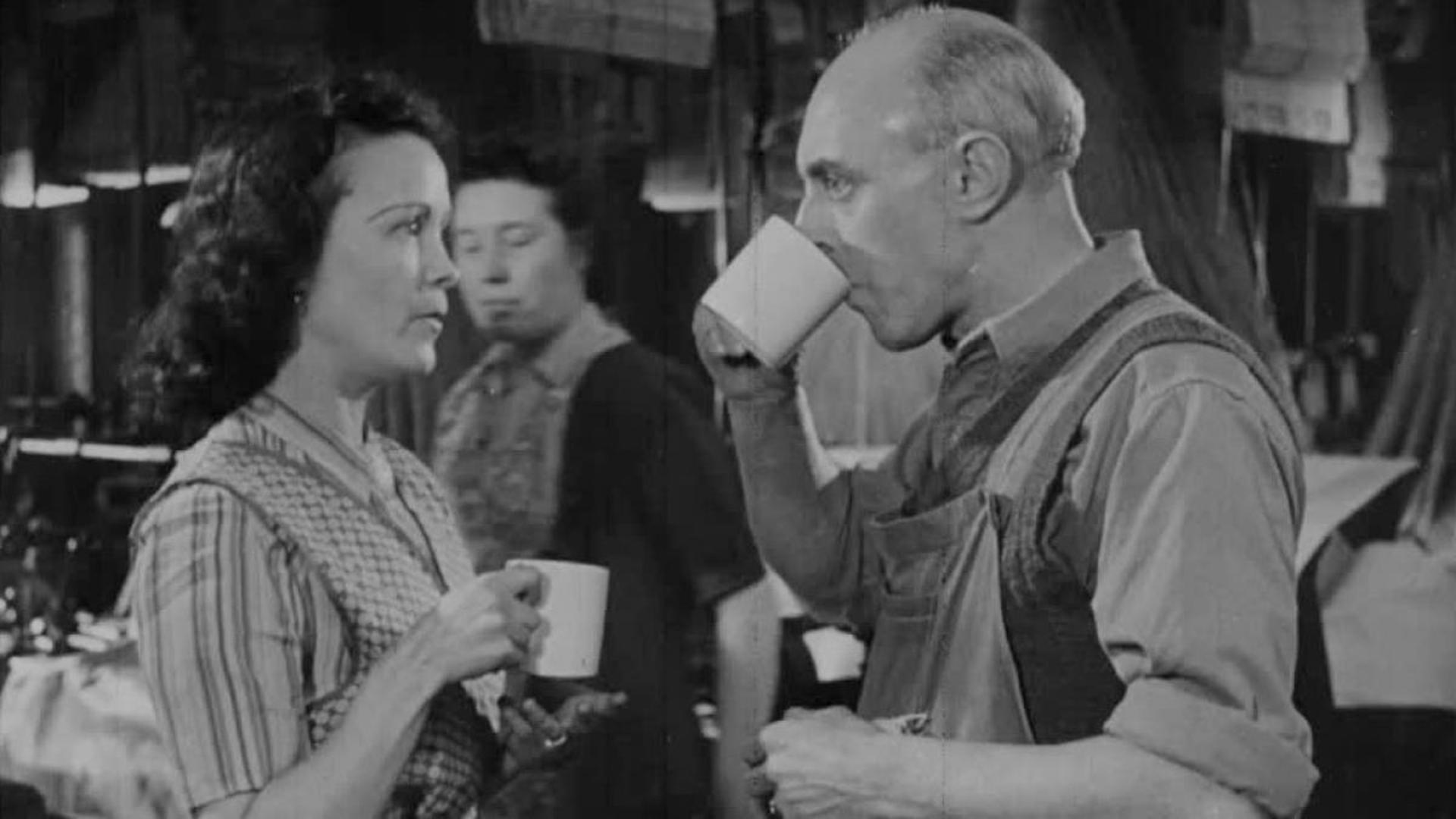
Langholm Made artist Emma Dove has assembled a programme of short films, spanning 1945 to the present day, which observe and celebrate the roles played by women across the weaving and textile industries in the UK and worldwide - from mill workers to garment makers, ‘waulkers’ to home menders, hand weavers and textile recyclers.
‘infinite hands’ brings together films from the British Film Institute’s ‘Textiles on Film’ collection, paired with contemporary films from the UK, Myanmar and India. Together they explore themes of labour, industry and mechanisation, camaraderie and teamwork, shifting attitudes, gendered roles and worker’s rights, material culture, fast fashion, recycling, industrial decline and overseas labour.
Further information about the film programme available here
↓ Click the tabs on the right to read a description of each individual film below ↓
Although the 'infinite hands' film programme is no longer available, this film can also be watched here
To the delight of her boss and colleagues, Doris Wood, "one of the best weavers in Lancashire", is set to return to work at Mather Street Mills in Bolton - that is, until her husband, Jack, who has been blinded as a solider and is unable to work himself, says otherwise; “I’d look well pegging the clothes out wouldn’t I? The neighbours wouldn’t half laugh.” This concise family drama reaches far beyond its official scope to address such issues as gender stereotypes, post-war economics and disability.
As a dramatised film shot on location, Lancashire Hotpot offers a rare cinematic portrayal of the mills of this era - the industrious activity of the looms observed in carefully composed camera movements and sharp details. Daily habits and routines of the workers play out amidst the clatter of firing shuttles - a tea break when the trolley arrives; the high-pitched ‘yelp’ to get a colleague’s attention across the machines; the switching of shuttles and snipping of loose threads, and the powering down at the end of a shift.
Shot at Shepperton Studios, London, and on location in Bolton, Lancashire Hotpot was one of a spate of films sponsored by the Ministry of Labour in the immediate post-war period to encourage women into the workplace and keep the wheels of industry turning. The film uses non-actors, the parts of Doris, Edna and Percy played play Anne Wood, Annie Cunliffe and Arthur Kendall from the Mather Street Mills, Bolton, and the part of Jack played by Stanley Greenwood, a blind man from the Bolton Workshops for the Blind.
This film is also available via BFI Player's ‘Textiles on Film’ series
- Year1949
- Runtime10 minutes
- LanguageEnglish
- CountryUnited Kingdom
- RatingPG
- NoteThemes: post-war Britain, industry, mechanics, weaving, women and work, women’s roles, household, housework, female friendship, camaraderie, blindness, disability
- ProducerAnglo-Scottish Pictures
- Executive ProducerCentral Office of Information
- CastStanley Greenwood, Anne Wood, Annie Cunliffe, Arthur Kendall
Langholm Made artist Emma Dove has assembled a programme of short films, spanning 1945 to the present day, which observe and celebrate the roles played by women across the weaving and textile industries in the UK and worldwide - from mill workers to garment makers, ‘waulkers’ to home menders, hand weavers and textile recyclers.
‘infinite hands’ brings together films from the British Film Institute’s ‘Textiles on Film’ collection, paired with contemporary films from the UK, Myanmar and India. Together they explore themes of labour, industry and mechanisation, camaraderie and teamwork, shifting attitudes, gendered roles and worker’s rights, material culture, fast fashion, recycling, industrial decline and overseas labour.
Further information about the film programme available here
↓ Click the tabs on the right to read a description of each individual film below ↓
Although the 'infinite hands' film programme is no longer available, this film can also be watched here
To the delight of her boss and colleagues, Doris Wood, "one of the best weavers in Lancashire", is set to return to work at Mather Street Mills in Bolton - that is, until her husband, Jack, who has been blinded as a solider and is unable to work himself, says otherwise; “I’d look well pegging the clothes out wouldn’t I? The neighbours wouldn’t half laugh.” This concise family drama reaches far beyond its official scope to address such issues as gender stereotypes, post-war economics and disability.
As a dramatised film shot on location, Lancashire Hotpot offers a rare cinematic portrayal of the mills of this era - the industrious activity of the looms observed in carefully composed camera movements and sharp details. Daily habits and routines of the workers play out amidst the clatter of firing shuttles - a tea break when the trolley arrives; the high-pitched ‘yelp’ to get a colleague’s attention across the machines; the switching of shuttles and snipping of loose threads, and the powering down at the end of a shift.
Shot at Shepperton Studios, London, and on location in Bolton, Lancashire Hotpot was one of a spate of films sponsored by the Ministry of Labour in the immediate post-war period to encourage women into the workplace and keep the wheels of industry turning. The film uses non-actors, the parts of Doris, Edna and Percy played play Anne Wood, Annie Cunliffe and Arthur Kendall from the Mather Street Mills, Bolton, and the part of Jack played by Stanley Greenwood, a blind man from the Bolton Workshops for the Blind.
This film is also available via BFI Player's ‘Textiles on Film’ series
- Year1949
- Runtime10 minutes
- LanguageEnglish
- CountryUnited Kingdom
- RatingPG
- NoteThemes: post-war Britain, industry, mechanics, weaving, women and work, women’s roles, household, housework, female friendship, camaraderie, blindness, disability
- ProducerAnglo-Scottish Pictures
- Executive ProducerCentral Office of Information
- CastStanley Greenwood, Anne Wood, Annie Cunliffe, Arthur Kendall